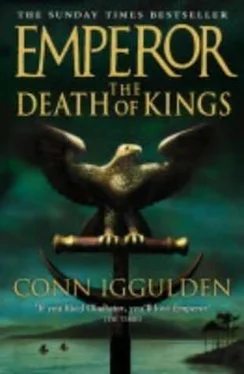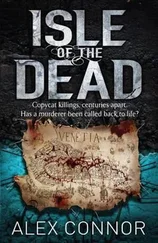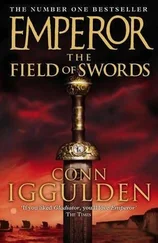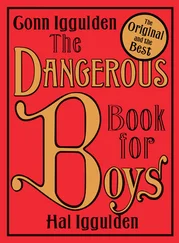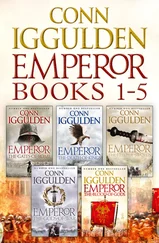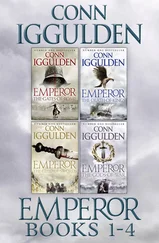Cabera wiped his fingers around his bowl and handed it back to the cook servants as they made their way through the vast encampment. There was never enough to eat, and by the time the bowls were passed out, much of it was as cold as the day. Around them, the men waited in that sleepwalking peace before a battle. None of them had fought the slaves before, but the usual chatter was absent. Somewhere to the south, it was easy to imagine a field like the one where they sat, littered with Roman bodies and crows.
Julius sighed as the rain started again. It would make the ground even softer. It didn't matter. It fitted his mood perfectly, the skies reflecting the depression that had settled on him. The picture of his wife's pale face and the torch-lit bed was as clear as if he were still seeing it in his mind. Tubruk, even Cato. It all seemed so terribly pointless. He'd loved the struggle in the beginning, when Marius was the golden general and they knew they fought for the city and each other, but the lines had blurred along the way and now he was sickened, eaten by guilt.
Julius dipped his fingers into the stew, pushing it into his mouth without tasting it. When Pelitas had died, he had wept, but there were no more tears in him for the others. He had no more lies for them, no more speeches. The grand lie had been that there was anything to fight for at all.
His father had seemed to see something worth saving in the Republic, but there was nothing left of that. There were just small men like Cato and Pompey, who saw no farther than their own glory. Visionless men, caring nothing for the things Tubruk had told him were important. Julius had believed what the great men had taught him, but they had all died for their dreams.
He reached down into the mud between his sprawled feet to trace a line with his finger. None of it was worth the death of one of them. Not Cornelia's, not Tubruk's, not any of the men he had led in Greece. They had followed him and given their lives without complaint. Well, he could do that, at least.
Of all the soldiers, Julius welcomed the battle to come. He would place himself in the front line for one last hour until it all finally stopped. He was tired of the Senate and tired of the path. It made him wince to think back to the day Marius had taken him into the building for the first time. He had been awed then at the heart of power. They had seemed so noble then, before he knew them too well to respect. He pulled his cloak against him as the wind built and heavier rain began to fall, spattering the mud around. Some of the men cursed, but most were quiet, making their peace with the gods before the killing began.
“Julius?” Cabera said, startling him out of his thoughts.
Julius turned to see the old man was holding his hands out toward him. He smiled as he saw what Cabera had made for him. It was a circlet of leaves, gathered from the bushes and wound about with thread from his robe.
“What's that for?” Julius said to him.
Cabera held it out, pressing it into his hands. “Put it on, boy. It's yours.”
Julius shook his head. “Not today, Cabera. Not here.”
“I made it for you, Julius. Please.”
They stood up together and Julius put out a hand to grip the back of the old man's neck.
“All right, old friend,” he said, letting out a long breath. He removed his helmet and pressed the ring of wet leaves onto his hair, feeling them prickle against his skin. Some of the men looked at him, but Julius didn't care. Cabera had been there through all of it and he didn't deserve to be waiting to die in a muddy field, far from his own home. Another one who would die at his side.
“I want you to stay away from the front line when they come, Cabera. Live through this one,” he said.
“Your path is mine, remember?” the old man said, his eyes gleaming in the rain. His white hair hung in thin strips over his face, and there was something so bedraggled about him that Julius chuckled.
Around the pair of them, men rose to their feet in silence. Julius raised his head sharply at the movement, thinking it was time to march, but they just stood and looked at him. More and more joined them as the word spread, until every one of them was standing. Plates were put down and cloaks left to grow wet as they faced him and the rain fell.
Wonderingly, Julius reached up to touch the circlet and he felt his heart lift. These were not small men. They gave their lives without caring, trusting their generals not to waste what they offered. They smiled and laughed as he caught their eyes and he felt again the bonds that held them together.
“We are Rome,” he whispered, and turned to see thousands standing for him. In that moment, he understood what held Tubruk to loyalty and his father's faith. He would turn his hand to the dream as better men had before him, and honor them with his life.
In the distance, cornicens sounded the long notes to break camp.
***
“Keep moving, my brothers,” Spartacus roared. It was the end, and somehow, there was no fear. His slaves had shown that the legions could be beaten, and he knew there would be a day when the cracks they had made would widen and Rome would fall. The legions behind them glittered in the morning sun, sending up a shout as Pompey's thousands marched down to them, faster and faster like jaws to crush the slaves between them. Spartacus saw his ragged slaves would be engulfed. He drew his sword and pulled his iron helmet over his face.
“My gods, we gave them a run, though,” he said to himself as the air darkened with spears.
Pompey walked with Crassus between the rows of crosses. With Rome in sight, the line stretched for miles down the Via Appia behind them, six thousand men to serve as a warning and a proof of the victory. Forests had been felled to hold them, and when the legion carpenters ran out of nails, the slaves had simply been tied and speared, or left to die of thirst.
The two generals dismounted to walk the last mile into the city. Crassus would not be shamed, Pompey had promised him. Ending the rebellion erased the disasters that had gone before, and Pompey was willing to let him have his moment of glory. He had nothing to fear from Crassus and there was always his wealth to be considered. He would need wealthy men to finance his time as consul. Perhaps, he thought, it would be fruitful to urge Crassus to take the second consular post when the elections came. They could share the expenses then and Crassus would always be grateful.
In the distance, the generals could hear the tinny sounds of a cheering crowd, catching sight of them on the road. They smiled at each other, enjoying the moment.
“I wonder if we should ask for a Triumph?” Crassus said, breathing quickly at the thought. “There hasn't been one since Marius.”
“I remember it,” Pompey said, thinking of the young man who had stood at Marius's shoulder on the ride to the forum.
As if guessing his thoughts, Crassus glanced at him.
“It's a shame Julius isn't here to see this. He fought hard enough for us.”
Pompey frowned. He would not admit it to Crassus, but when he'd seen the Greek legions stand for Julius in the mud and rain, it had frightened him. All the great men were dead, but that one stood with the blood of Marius in him, general of the Tenth and with a growing fame that could be deadly if he ever chose to use it. No, he did not want Julius in his city or his precious legion. He'd signed the orders sending them to Spain without a moment's hesitation.
“Spain will temper him, Crassus. I have no doubt.”
Crassus looked questioningly at him, but chose not to reply, and Pompey nodded in satisfaction as the roar of the waiting crowd grew. Spain was far enough away for Marius's nephew, and when his five years there were up, the people would have forgotten him.
Читать дальше
Конец ознакомительного отрывка
Купить книгу
